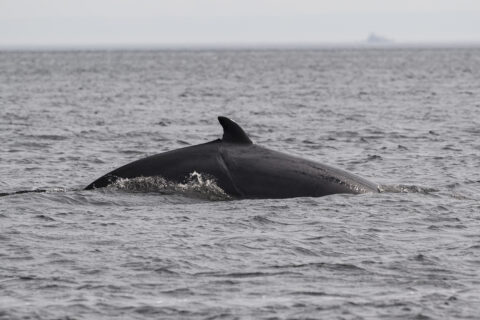Climate Change
UN climate chief says new national climate plans will fall short on emissions cuts
With governments due to announce ambitious emissions reduction targets at a UN summit in New York this week, the UN climate chief warned on Monday they will not add up to what is needed to keep global warming to the limits in the Paris Agreement.
Countries were asked by the UN climate change body to publish their new national climate plans (NDCs) by the end of September, in time to be included in a key summary report next month comparing those pledges with the global cuts scientists say are needed.
With around 110 countries lined up to speak at UN headquarters on Wednesday, a clearer picture will start to emerge on the scale of the gap between emissions-cutting targets and the reductions in planet-heating gases required to meet the 1.5C warming limit – 43% below 2019 levels by 2030 and 60% by 2035.
The European Union was unable to meet the September deadline because of political differences and will only present a range described as a “statement of intent” in New York this week.
China, meanwhile, is not expected to deliver an NDC that would align its efforts with the 1.5C limit. Heads of state from India and Indonesia are not scheduled to participate in the New York summit and so are likely to announce their plans later.
“We know [the NDCs] are going to be softer than what science dictates,” the UN’s climate head Simon Stiell told the opening of Climate Week in New York.
At the COP30 climate negotiations in Brazil in November, he added, “the focus… will not be what countries have presented, but how will they respond to those submissions – and that primary response is about accelerating implementation [of the NDCs], just getting it done.”
Complex process delivering results
Despite the expected emissions gap, growing criticism of the UN climate process, and rising global temperatures, Stiell maintained that the 2015 Paris Agreement is working to curb global warming. Projections before it was adopted suggesting a 5C rise are now down to around 3C.
“It is slower than science dictates. It is a very, very complex process, but it is delivering results,” he said. His agency’s upcoming report will show how much further warming estimates can be lowered towards the 1.5C goal, he added.
“We won’t be at 1.5 but we… will have inched forward, so progress is being made,” he added.
The company tracking energy transition minerals back to the mines
Speaking alongside COP30 president André Corrêa do Lago, both men called for more effort to translate the decisions made by the UN process into stronger climate action in the world outside. For that to happen, they said, the benefits need to be communicated more clearly to the wider public.
“What I believe is important is for people to have confidence in the process,” Corrêa do Lago said. “We have to show that there are solutions, and we have to show that it is economically intelligent logic and useful to fight climate change – for jobs, for development. And I think this message is not fully perceived.”
The veteran Brazilian diplomat added that he hoped the “action agenda” at COP30, which aims to encourage businesses, cities and citizens to ramp up action on climate change, would make the mission more popular.
Stiell agreed, saying one key challenge is to “dejargonise” the COP negotiations, which are notoriously hard for those on the outside to understand, because of their long texts laden with difficult language and fractious discussions. “It is making what we’re doing more consumable in living rooms,” he said.
Spreading the renewable energy boom
In a separate speech on Monday afternoon, the UN climate chief said that, despite the negative “noise”, “the facts show a world aligning with the Paris Agreement”.
He emphasised how investment in renewable energy has increased ten-fold in the past 10 years, with investment in clean energy hitting $2 trillion last year alone and more than 90% of new renewables now costing less than the cheapest new fossil fuel option.
“But this boom is uneven. Its vast benefits are not shared by all,” he added. “Meanwhile, climate disasters are hitting every economy and society harder each year.”
Stiell called on industry to step up its efforts to decarbonise, saying the transition would lead to “stronger economies, more resilient supply chains, lower costs and lower emissions”.
IEA says some oil and gas projects must shut early to meet 1.5C limit
In particular, he urged companies running artificial intelligence (AI) platforms to “power it with renewables, and innovate to drive energy efficiency”. He warned of the need to “blunt its dangerous edges” and to use its power “to drive real-world outcomes: managing microgrids, mapping climate risk, guiding resilient planning”.
Speaking separately at the Climate Week opening, Mark Patel, a senior partner at McKinsey & Company, said the urgency to scale up AI – which is set for investment of $5.2 trillion by the end of the decade – is currently reigniting demand for fossil fuels and competing for natural resources.
But, he added, it could instead be used to drive accelerated uptake of renewables and cheap battery storage, as well as nuclear energy and more efficient semiconductors.
Stiell argued that if the real economy powers forward with climate solutions and the UN talks set a higher bar for that action, with both feeding through to the other, it could lead to “a kind of virtuous loop”.
The post UN climate chief says new national climate plans will fall short on emissions cuts appeared first on Climate Home News.
UN climate chief says new national climate plans will fall short on emissions cuts
